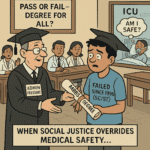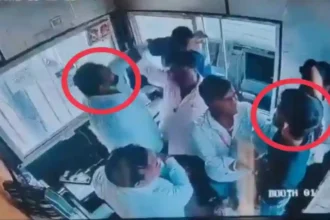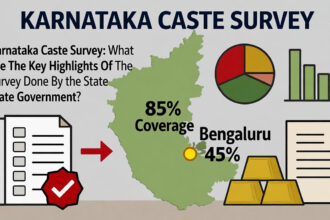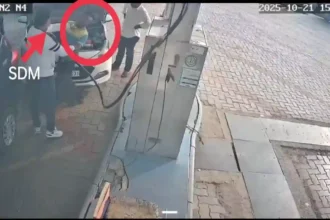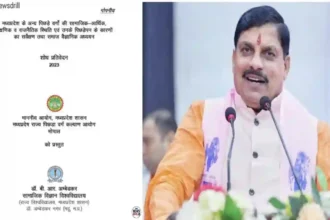In a democratic country like India, the Constitution guarantees equality before the law and equal access to the nation’s resources. However, the statements made by political leaders from both ends of the spectrum reveal a disturbing trend of vote bank politics, where national resources are subtly portrayed as property of select communities — not as a shared right of every citizen.
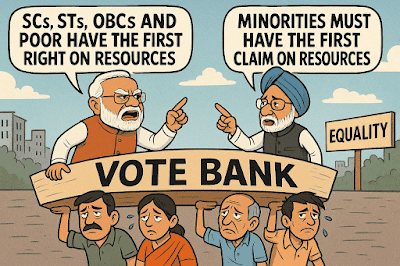
“First Right on Resources” – A Recycled Political Script
In April 2024, Prime Minister Narendra Modi declared:
“SCs, STs, OBCs and the poor have the first right on the country’s resources.”
This remark comes eerily close to what former Prime Minister Dr. Manmohan Singh said in 2006:
“Minorities, particularly Muslims, must have the first claim on resources.”
Both statements, though made in different contexts, ultimately reinforce one uncomfortable truth: the use of identity politics to secure votes.
Selective Empathy or Real Development?
On the surface, these declarations seem to stem from concern for marginalized communities. But beneath the rhetoric lies a strategic move to consolidate vote banks. Politicians, irrespective of their party lines, appear to be making emotional appeals to caste and religious groups, presenting themselves as saviors, while pushing the rest of the population into a corner of silence.
By repeatedly emphasizing that specific communities should have the “first right” to resources, leaders indirectly create a perception that the rest of the population — including general category poor, unreserved economically backward people, and middle-class taxpayers — are second-class citizens in their own country.
What About Equal Rights?
The Preamble of the Indian Constitution promises:
“Justice, social, economic and political; Equality of status and of opportunity…”
Nowhere does it say that the right to resources shall depend on caste or religion. Welfare programs and affirmative action must uplift the disadvantaged, but they should never become permanent tools of political favoritism.
True equality demands individual-based support, not community-based entitlements determined by birth. A poor person is poor — regardless of their caste or religion — and deserves just as much support from the state as anyone else.
Divide and Rule in a New Form
In the name of social justice, what we are witnessing is a new form of divisive politics. It is no longer about uniting people under one national identity but slicing the electorate into blocs based on caste, religion, or economic condition and selling promises accordingly.
This isn’t governance. It’s strategic segmentation of voters, and it’s dangerous.
Stop the Hypocrisy – Start the Dialogue
The time has come to question this political hypocrisy. If leaders truly care about upliftment, why not:
-
Promote merit-cum-means based policies?
-
Create transparent systems of welfare allocation?
-
Focus on real development like education, employment, and entrepreneurship?
Citizens Deserve Better
India needs leaders who talk about citizenship, not caste. About potential, not privilege by birth. It’s time to move from tokenism to transformation, from reservation of minds to liberation of possibilities.
Because in a republic, resources belong to all — not to a vote bank.


